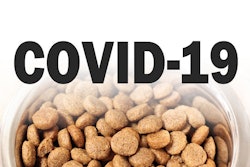
The whole world recently got a forced lesson in crisis management. Long before the pandemic though, dog, cat and other pet food companies have dealt with crises ranging from recalls to class action lawsuits. When facing one of these tight spots, pet food industry professionals often face two options for how to react. Paola Cane, CEO of Mia Solutions, discussed the dos and don’ts of crisis management during her presentation at Petfood Forum CONNECT.
Maintaining a clear head and rationally analyzing the crisis keep a pet food company from making rash decisions with long term consequences. However, considering a problem too long can result in a failure to act at a prudent time. Ultimately, crisis management involves balancing emotional and intellectual responses to avoid panic or retreat.
Pet food crisis management strategy
Do: Plan
“A crisis management plan could be an effective tool for many reasons and can help you help you too. Manage certain aspects and save time.”
Don’t: Rely too much on the plan
“A crisis management plan shall not be crafted nor considered as a step by step guide,” Cane said. “Think of your plan as a reference tool. Keep in mind that having a plan is not enough. Please, read your plan in advance and not after the crisis hits. Update your plan, at least once a year. Test your plan with specific simulation and constantly adapt to your company's growth and changes.”
Do: Promptly respond
“Speed is a crucial element in dealing with crisis sending areas,” Cane said.
Rapid action especially helps in these aspects of crisis management:
- Data collection and update
- Information transmission
- Decisions
- Corrective actions
Don’t: Wait and see
“There are many rational reasons for late response to crisis, and I'm sure that you have experienced some of them during the COVID-19 spread,” she said. “The wait-and-see approach has been the go-to crisis method for a lot of professionals in the past decades.In my personal experience, crises never solve themselves alone. Nothing magical happens to end a crisis, thanks to the wait and see approach.”
Do: Urgent decision
Making urgent decisions is essential, even when based on little or partial information, she said.
Don’t: Harsh decision
However, pet food companies must avoid the risk of making an overly harsh decision, based on incomplete or inaccurate information. Many long term negative results may occur.
Do: Control of self and situation
“Crisis require a good dose of self-control and moreover, they require ability to exert control over the situation in order to take proper actions and reduce negative consequences,” she said.
Don’t: Panic
“Up to a point, anxiety, fear and stress are human emotional reactions that can be considered absolutely normal,” she said. “They are not a sign of weakness until they take the upper end.”
“Maintaining controls means the ability to stay focused on the objective on protecting stuff, staff, space and system, along with reputation and ensuring continuity to the operations.”
Do: Find solution
“Our job as leader is finding solutions and not to look for someone to blame,” she said.
Don’t: Look for someone to blame
“When trying to determine responsibilities for mistakes, it is good to remember that the witch hunt mentality is often deleterious,” Cane said. “On the contrary, it will lead those responsible to hide information necessary for decision making in attempted to escape the pillory.”
Do: Ensure communication
“You're in a crisis,” she said. “Stakeholders are anxious, and they need to hear clear, compelling and consistent communication. That's why your communication shall be precise and transparent, effective and quick. Part of the communication may be admitting mistakes publicly. Admitting mistakes publicly it can be very difficult, even painful, but it's not a sign of weakness. On the contrary, in many circumstances that apology and admitting mistakes can help rebuild the relationship with your stakeholders.”
Don’t: Poor or no communication
“At the opposite, public denial can be interpreted as arrogant,” she said. “This is a quality that no company would like to be associated with. Never refuse to communicate, and never lose the opportunity to show your concerns and your commitment to your stakeholders.”


















